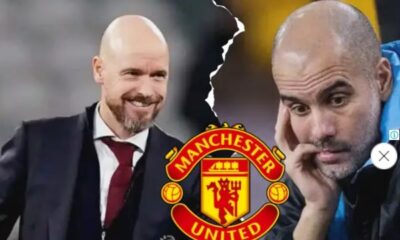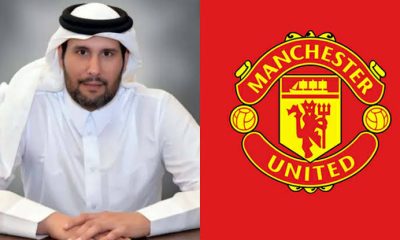Liverpool
John Henry has previously hinted that Liverpool will accept a radical plan from UEFA

John Henry has previously hinted that Liverpool will accept a radical plan from UEFA

UEFA plans to move forward with proposals to introduce a salary cap in European football
John Henry, owner of Liverpool and boss of FSG
How to stem the ever-increasing spending that has accelerated the rift between Europe’s elite teams and the rest has been the subject of debate for some time.
With the huge broadcast rights boom in recent years, the biggest teams have the ability and willingness to spend on both fees and player salaries in the transfer market. This led to a transfer where the value of players was skewed and elite clubs were effectively able to move up the ladder from the rest of the field.
With the launch of the European Super League plot in 2021, also involving Liverpool, European football’s governing body UEFA has sought to take a more determined stance against the erosion of competition caused by the rapid collapse of the separatist league.
New financial sustainability rules have been introduced to replace the decade-old Financial Fair Play rules, which ultimately proved unable to stop the biggest clubs from pulling out and instead penalize those who wanted to fill the gap. gap between clubs. This week, UEFA President Aleksander Ceferin said a move towards a salary cap would be introduced “as soon as possible”, a move that would have implications for the whole of European football.
“It’s not about ownership. It’s about the value of the competition because if five clubs always win it doesn’t make sense anymore. But it has to be a collective agreement – every league and UEFA. ” Because if we do it and not the other competitions, it is not logical. “Speaking to popular American football-focused media channel Men In Blazers, Ceferin said: “Right now we have the new post-2024 rule that you can spend up to 70% of your income on salaries and transfers, but that’s not enough because if your income.” five billion, 70 percent, is a lot.
Ceferin continued to say that both large and small clubs have agreed that the best way to stay on a sustainable path in football, limit the players’ gain potential, with Cloblayroll that has increased exponentially in recent years.
Liverpool’s wage account was £ 366 million for the financial year of 2021/22, a period with important bonuses paid to the players for a season in which the club has won two domestic trophies, it arrived second in the Premier League and are were defeated in the final of the Champions League competition.
Even a series of extensions for important players for improved agreements have played a role, but although that figure will fall before 2022/23, it will also include the Bumperdeal who was paid for Mohamed Salah to Anfield for the first time last summer. The Egyptian became the most repaired player in the history of the reds when he put the pen on paper with a three -year contract.
When the Premier League began for the 1992/93 season, the annual wage account in Liverpool was £ 7.7 million, the highest in the Premier League. The increase over the past 30 years was 4,676 percent, according to data presented by football finance expert and Price of Football author Kieran Maguire. At Chelsea the increase was 7.414%, while at Manchester City it was 8.823%.
Looking over the last decade that Fenway Sports Group has owned Liverpool, the wages bill has increased by 177.2%, from £132m in 2013 to £366m in 2022.
Ceferin’s stance on introducing salary caps is likely to be applauded by FSG chief and Reds principal owner John W. Henry, who spoke last month in an exclusive interview with ECHO about the need for better costs. Henry said: “There are always bigger financial challenges in the Premier League. The league itself is hugely successful and the biggest football competition in the world, but we’ve felt for some time there should be spending restrictions lest the league go down the road of European leagues where one or two clubs a year have little competition.
“The excitement depends on the competition and is the most important part of the Premier League.”
As Liverpool’s business model under FSG has long been about sustainable growth and what happens off the pitch is key to what can be done there and vice versa, Henry’s attitude to the growing challenge encountered in this particular way is, unsurprisingly, managing a football club in the Premier League’s elite league.
Over £500million in transfer fees was spent last year alone under new Chelsea owners Todd Boehly and Behdad Eghbali. The London club now faces the obligation to send a number of high earners to balance the balance sheet and avoid possible breaches of profit and sustainability regulations. Chelsea’s plan has so far failed in terms of investment. They have sacked two managers this season and are in the middle of the table with no hope of European football next season.
But where there may be a desire from owners to rein in wage spending, Professional Footballers Association CEO Maheta Molango said plans for a salary cap were “not the solution”.
Molango said: “[Players] need to be treated as key stakeholders and be at the center of these conversations. When players read that “everyone agrees” with capping their salaries, I think they’ll justifiably get angry. “Without proper engagement or advice, players are constantly being asked to play more and more games. New competitions are created and existing tournaments are expanded. All of this generates more money in football.
“Limiting the wages of those who

 Manchester United11 months ago
Manchester United11 months agoMason Greenwood Has Confirmed His Departure From England For The white Country’s National Team

 Manchester United1 year ago
Manchester United1 year ago‘I pleaded with Him to join Arsenal but He chose Man united over us’: William Saliba confirmed His £45m international teammate have agreed personal terms to join Man united over Arsenal

 Manchester United1 year ago
Manchester United1 year ago‘He is making the biggest mistake in his career’: Kelvin De Bruyne CONFIRMED his £50m international teammate have agreed personal terms to join Man united ahead of Man City

 Uncategorized11 months ago
Uncategorized11 months agoMan United news LIVE: Glazer takeover price’met,’ Sheikh Jassim reacts, Jadon Sancho swap agreement

 Manchester United1 year ago
Manchester United1 year agoMan city boss Pep Guardiola is UNHAPPY as €65m European star tells him nobody can stop him from joining Erik Ten Hag’s Man united this season.

 Manchester United1 year ago
Manchester United1 year agoCelebration at Old Trafford Qatar’s Sheikh Jassim arrives at Man United to sign the takeover deal (deal 100% done by Fabrizio Romano) unverified.

 Manchester United1 year ago
Manchester United1 year agoMonday morning done deal: Man united completed the signing of £50m superstar as potential replacement for Erikson,all paperwork work signed last night,player set to undergo his medical at London Carrington today

 Manchester United11 months ago
Manchester United11 months agoMan United takeover ‘will happen,’ says Sheikh Jassim, who is willing to pay another £2 billion to complete the deal.




















